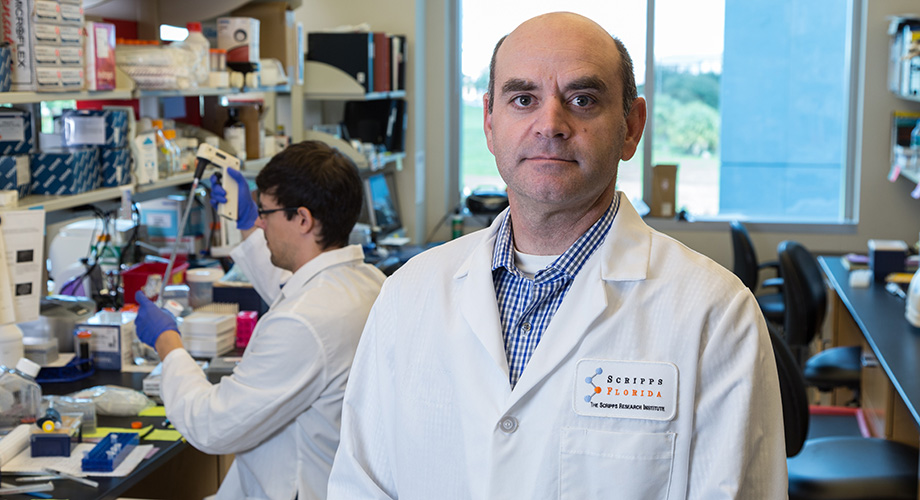
New Exploratory Grant Will Help Scripps Florida Scientists Advance Treatment Development
Scientists from the Florida campus of The Scripps Research Institute have been awarded nearly $1 million from the National Institute of Neurological Disorders and Stroke, part of the National Institutes of Health, to develop a genetically engineered animal model of a debilitating inherited disease that could accelerate the development of potential treatments.
Joseph Kissil, a TSRI associate professor in the Department of Molecular Medicine, is the principal investigator for the three-year grant. This is a phased award; if certain benchmarks are met, the grant is extended for a third year.
Kissil has been studying Neurofibromatosis Type 2 (NF2) for a number of years. The disease is caused by mutations in the anti-tumor gene NF2, which leads to tumors of the auditory nerve that connects the inner ear to the brain and causes severe hearing loss and impaired balance and walking. A majority of patients develop additional tumors throughout the nervous system, which can lead to fluid buildup in the brain and seizures.
While knowledge of the molecular mechanisms underlying the disease has improved significantly over the past two decades, there are still no effective treatments. Current options are non-curative and include surgery, radiation therapy, as well as temporary interventions for symptom control.
“Clearly, there is an urgent need to develop better options for these patients,” Kissil said. “One of the main obstacles is the lack of animal models that can be used in pre-clinical testing of drug candidates. This grant will help us develop a genetically engineered animal model of the disease that accurately portrays the biology of tumor development in patients – and that can be used to evaluate drug candidate efficacy.”
In 2013, Kissil and his colleagues identified a new drug candidate to treat NF2. The compound —known as FRAX97—slowed the proliferation and progression of tumor cells in some preliminary animal models of the disease. Originally developed for neurodegenerative disease, the compound targets a protein family known as p21-activated kinases or PAKs. These kinases (enzymes that add a phosphate group to other proteins and change their function) play a critical role in the development of NF2.
“While the models that we used then offered a good approximation, they were just that – an approximation,” Kissil said. “There’s still a great need for models that more closely reflect what happens in patients and that the new model we’re working on does just that.”
The number of the grant is1R21NS099417-01A1
For more information, contact press@scripps.edu See More News

